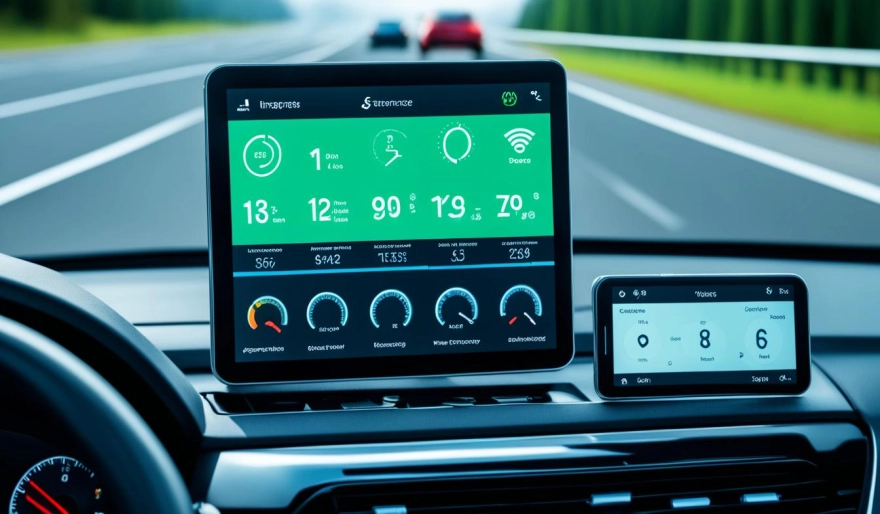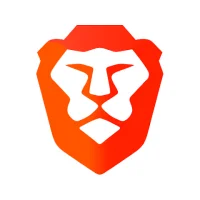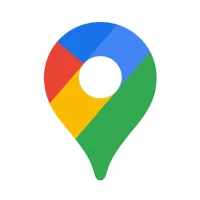These apps track your driving habits and sell that information to insurance companies
33 min read These apps track your driving habits and sell that information to insurance companies -written by Amine Rukhi, Content Creator July 05, 2024 10:19
These apps track your driving habits and sell that information to insurance companies
In today's connected world, many don't know their driving data goes to insurance firms. Yet, apps, cars, and data sellers have spread this practice wide. They reach even those who value their privacy the most. More than 40 million "active connections" in the US share their driving data. They do this via "consumer mobile apps, in-car devices, and connected cars."
Apps like Life360, MyRadar, and GasBuddy on your phone watch your driving and tell Arity. This company is linked to Allstate and makes driver scores from your data. These apps don't clearly say they're collecting your driving data in their agreements, which is a problem. Many drivers have no clue their data is being used and sold to insurance companies.
Key Takeaways
- Many popular apps on your smartphone, like Life360, MyRadar, and GasBuddy, are tracking your driving habits and selling that data to insurance companies.
- A data broker called Arity, founded by Allstate, is collecting and analyzing this driving data to create "driver scores" that are then sold to insurers.
- Consumers are often unaware of the extent of data collection and how it impacts their insurance rates, as the opt-in disclosures are hidden in app agreements.
- This practice raises significant privacy concerns for drivers who may not fully understand how their driving data is being used.
- Telematics and connected vehicle technology offer the potential for better-priced auto insurance, but transparency and consumer control over data collection is crucial.
Introduction: The Rise of Driving Data Collection
The trend of gathering driving data is getting popular. This is thanks to connected vehicles and smartphone apps. Manufacturers of these connected vehicles sell driving data to insurance companies. This helps these insurance companies set rates for drivers. Apps on smartphones like Life360 and GasBuddy track driving habits too. They then share this info with insurance companies through a data broker called Arity.
Explaining the Practice of Collecting Driving Data
The automotive telematics market was worth $50.4 billion in 2018. It's expected to hit $320 billion by 2026. This shows how important data collection is for the industry. Many sectors use telematics software. This includes delivery companies, towing firms, and the police. These systems help with productivity, safety, and keeping the environment clean.
The Role of Apps and Connected Cars in Data Gathering
In the insurance industry, vehicle owners can now share driving safety data. This could lower their insurance costs based on how safely they drive. More vehicles now have identification sensors for better security. Systems like telematics are using the latest technology, like M2M and IoT. All this makes vehicles safer and more connected.
"A widely cited 2013 study from Nature revealed that just four spatio-temporal points from an 'anonymous' dataset can reidentify 95 percent of people, while only two points could uniquely recognize 50 percent of individuals. This highlights the sensitivity of location data."
Today, all top ten insurance companies have programs for customers to share their data. This helps with the pricing of car insurance. Every state outside California allows using this data for setting insurance rates, as long as it follows certain rules.
Car insurance is increasingly using telematics for managing risks. This means more and more people are joining programs to share how they drive. It's important for companies in the telematics sector to have strict rules about collecting and using data. This ensures customer safety and fairness.
Popular Apps Involved in Driving Data Collection
Apps like Life360, MyRadar, and GasBuddy keep track of how we drive and share this with car insurers. They work with Arity, a company founded by Allstate, to gather and study this driving data. Then, they sell the info to insurance companies. This helps in deciding individual drivers' insurance costs.
Life360 and Arity
Life360, a well-known app for family safety, sends driving information to Arity for specific uses within the app. For example, detecting when you drive or if you've had a crash. There are rules to follow on how they can use this data. A mom with twins on Life360 wondered if the apps sold their driving data. Turns out, they do, through Arity.
GasBuddy's Drives Feature
GasBuddy has a special feature called Drives, with Arity behind it. It looks at how efficient you are with gas and needs you to share some details with Arity. This helps insurance companies better understand and reach out to drivers. It's based on how and how much you drive.
MyRadar and Driving Data Collection
Even MyRadar, the weather app, joins in by passing on driving data to car insurers through Arity. It keeps tabs on your phone's sensors, noting things like going too fast, sudden stops, and where you are. Then, it shapes driver profiles to decide on insurance prices.
These cases show how many handy mobile apps are actually helping insurers by collecting and selling our driving habits.
https://www.youtube.com/watch?v=luojkK4_ME0
"Arity has over 40 million active connections to US drivers who share their data with them through consumer mobile apps, in-car devices, and connected cars."
These apps track your driving habits and sell that information to insurance companies
Today, lots of mobile apps are out there, like GasBuddy, that check how well you use gas. They say they're "powered by Arity." But signing up for this means you agree to let them collect data. This agreement is usually buried in long, hard-to-read terms most people skip over. It's tricky for users to know they're opting in, stirring up worries about privacy and consent.
Arity, which is part of Allstate Insurance, has info on over 40 million drivers in the US. They get this data from apps, car gadgets, and cars that connect to the internet. With all this info, Arity can make very detailed profiles of how people drive. They sell this data to car insurance companies to help set prices for drivers.
Many famous apps are in on this, such as Life360, MyRadar, and GasBuddy. They all offer options to let them check your driving. But a lot of drivers don't know their driving data is being used like this. They don't realize it's making money for both app makers and insurance companies.
All this hidden data sharing is a big deal. People usually don't know what signing up for these apps really means. It's really important to understand and deal with these privacy issues. They could affect how much you pay for car insurance.
"The lack of awareness among consumers regarding the extent of information collected by data brokers and its potential impact on insurance rates is a significant issue that needs to be addressed."
If you care a lot about your privacy, it's best to steer clear of Arity-powered apps and others that share your driving details with insurance companies. Doing this lets you keep your driving info to yourself. It also helps keep your insurance prices in check.
Arity: The Data Broker Behind the Scenes
Arity is a data broker started by Allstate. It works closely with driving apps. These apps collect driving data from over 40 million U.S. drivers. Then, it sells this data to insurance companies. They use it to decide how much drivers should pay.
Arity's Partnership with Insurance Companies
Arity's link with insurance companies worries many people. Imagine getting a report of your 640 trips. It would show if you sped, stopped suddenly, or accelerated hard. This info comes from apps like General Motors and is seen by eight different insurance companies.
Some drivers worry that OnStar, a General Motors service, could be sharing this data. They think it goes to data brokers like Arity working with insurance firms.
But, some companies like Ford and Honda only share data with your okay. Senator Ed Markey is looking into whether automakers and insurers might be working together against the law. He thinks they might misuse this data to charge more, which could be wrong.
Arity's Claim of 40 Million Active Connections
Arity saying it is connected to over 40 million U.S. drivers shows how big the industry is. This makes people worry about their privacy. They might not know how much their driving data is used by these companies. This includes both insurance agencies and brokers like Arity.
"Arity's partnership with insurance companies has raised concerns among consumers about the privacy and transparency of these data collection and sharing practices."
Opt-In Practices and User Awareness
Whenever a smartphone app asks for your data, you need to agree to it. But, the request is often hidden within a long agreement that we usually skip over. It's tricky to see how to agree because the info is hard to find. It might only say that by clicking "Join Drives," you share "some information" with Arity.
Car companies use apps to check on how safely people drive. They look at things like quick stops, fast starts, and going too fast. Companies like LexisNexis study this info to give insurers an idea of how safely someone drives. If these reports show bad driving, you might have to pay more for insurance, even if your past record is good.
Getting car insurance can be complicated, with lots of legal talk we might not understand. This can lead to agreeing to things we didn't mean to. Car-makers use different words to talk about their sharing programs. Some are clear about what they do, while others are not.
Asking for your driving data can be a real hassle, and many people might not bother. Some insurance plans change their prices based on how you drive and what info you share.
"A New York Times investigation revealed that many automobiles are spying on their drivers' behavior and sharing data with insurance companies without owners' knowledge."
Every car brand has its own way of sharing your insurance info. Toyota has "Insure Connect," and Honda does it too but in their privacy policy, after you turn on certain options. They collect lots of info, like details about your car's health, where you go, how you use the car, and your driving style. Then, they might use this to change what you pay for insurance.
The Electronic Frontier Foundation offers advice on how to protect your info. They suggest ways to stop sharing with insurers and how to ask car companies what they know about you. They tell you how to opt-out of sharing data with insurance companies through your car's apps and systems and also how to seek information from car makers about the data they have on you.
Impact on Insurance Rates
These apps gather your driving info and pass it to insurance companies. The info is used to give every driver a special score. Based on this score, they decide how much each driver must pay for insurance. This might mean some drivers will have to pay more for insurance. The Associated Press says car insurance has gone up by 22%. And companies like Progressive had a 50% increase in their earnings last year.
How Driving Data Affects Insurance Premiums
Tech data tells insurers how you drive, like if you speed or break hard. If you drive well, you might get discounts. But, if your car spies on you without you knowing, it might cost you more.
You have to agree to use these tech programs and let your data be seen. But some people don’t know they signed up. This is a problem, especially for those who have less money. They might be treated unfairly because of how they drive. Without clear rules, privacy worries for drivers continue.
| Potential Impact of Telematics on Auto Insurance Rates | Estimated Discount/Increase |
|---|---|
| Telematics program enrollment | 10% discount |
| Improved driving behavior based on telematics data | 10-40% discount |
| Unaware tracking leading to rate increases | Up to 21% increase |
| Rates doubling due to data sharing | 100% increase |
While these programs can save you money, they also have some big issues. People are worried about how fair and private the data use is in setting rates. As things change, it's very necessary for laws to protect people's privacy and make sure the prices are fair.
"Telematics programs can potentially reduce car insurance premiums by 10% to 40%, but they also raise privacy concerns with consumers."
Privacy Concerns and Consumer Rights
The use of driving data by apps and insurance companies is troubling for many consumers. They often don't know their driving habits are being watched and shared. The hidden way this is done worries people about their privacy and if they've agreed to it. People are asking for better rules and more rights to protect them.
Companies like Allstate, Progressive, and State Farm say they might share your info. But, they don't always explain this clearly when it comes to how they collect your car data. See, you might not notice, but sometimes when you buy a car, your information is shared. This is done usually to earn rewards.
There are those in power, like Senator Bob Casey, looking into how insurance companies use tracking tech. They suggest using less data and making strict laws to protect your info. It's about making sure you agree before they watch you too closely.
Right now, consumers don't really know how their car info is sold. This is especially true for smartphone apps that follow how you drive and might share personal stuff. If you say 'no' to being monitored, you might have to pay more for insurance.
It's clear we need to be more open about how we collect and use driving data. The rules about this need to get better as more and more data is gathered. This way, people can feel safe and in control of their privacy and rights.
Alternatives for Privacy-Conscious Drivers
For drivers who worry about how their data is used, there are some choices. They can stay away from apps linked to Arity, a major player in data collection. Another option is using apps that let you say no to sharing data, but finding this option can be tough.
Avoiding Apps Powered by Arity
Arity, owned by Allstate, works with insurance companies and car makers. To limit data shared with insurance, drivers should avoid these apps.
Opting Out of Data Sharing
Some apps do offer opting out, but it's hard to do. Privacy-minded drivers might choose to not use these apps. This stops their data from going to insurance companies. Good driving, though, might help lower insurance costs.
FAQ
What is the connection between connected vehicles, smartphone apps, and the collection of driving data?
Both connected vehicles and popular apps such as Life360 share driving data with insurance firms. They use a data broker known as Arity, started by Allstate. This setup raises many worries about privacy for customers.
How prevalent is the practice of collecting driving data?
Collection of driving data has been growing. Companies making connected cars gather this data, selling it to insurers. Many apps, like those mentioned, also follow your driving and work with insurance agencies.
What are some examples of apps that collect and share driving data?
Apps like Life360, MyRadar, and GasBuddy monitor how you drive. They then share this information with insurers through Arity.
How do these apps obtain user consent for data collection?
Normally, the permission to collect data is part of a long, hard-to-read contract. This makes it tricky for people to know they're agreeing to it. It's a big issue around consent and privacy.
Who is Arity, and what is their role in the collection and sharing of driving data?
Arity, founded by Allstate, works with various apps to gather and study driving data. They say they have lots of connections to US drivers, through apps and connected cars. Arity then sells this data to insurance companies.
How does the collected driving data impact individual insurance premiums?
The data these apps and Arity share can change how much you pay for insurance. Insurance companies score your driving based on this data. This can mean higher prices for some customers.
What are the privacy concerns surrounding the collection and use of driving data by apps and insurance companies?
Big worries exist about how apps and insurance firms use our driving data. Drivers often don’t know their habits are being watched and shared. The unclear opt-in process makes us question if everyone is fully aware.
What alternatives are available for privacy-conscious drivers?
There's a couple of things privacy-focused drivers can do. First, avoid Arity-powered apps if you're worried about your data being shared. Some apps let you choose not to share data, but figuring out how can be hard.
User Comments (0)
Popular Apps










Editor's Choice









